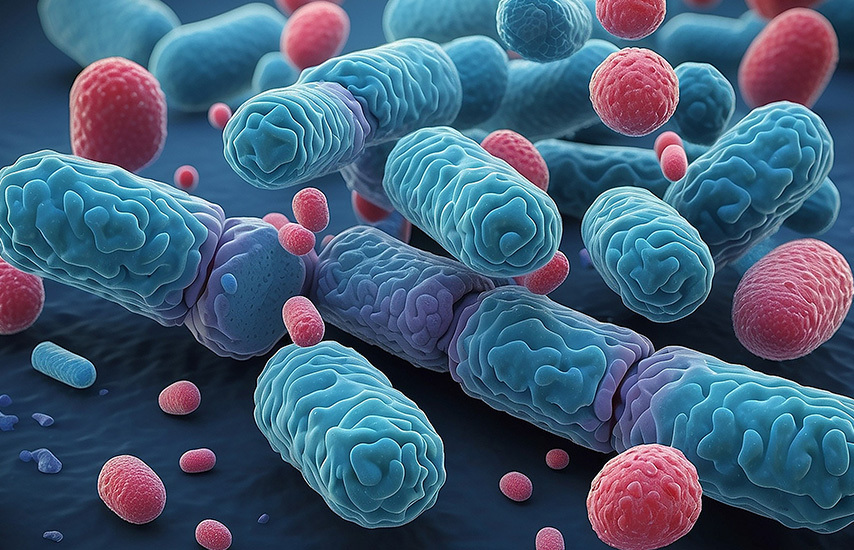Do Probiotics Help with Bloating?

Bloating is a common issue that affects millions of people worldwide, causing discomfort, abdominal distension, and digestive pain. While many turn to probiotics for relief, the question remains—do probiotics actually help with bloating? Research suggests that certain probiotic strains can support gut health and aid digestion, but the effectiveness depends on the individual and the root cause of bloating. Let’s explore the scientific evidence, causes of bloating, and alternative ways to reduce it.
Effectiveness of Probiotics for Bloating
Probiotics are beneficial bacteria that support the gut microbiome, which plays a crucial role in digestion. Several studies have shown that specific probiotic supplements can reduce bloating by improving gut motility, fermentation processes, and bowel movement regularity. However, not all probiotics work the same way.
Probiotic Strains That May Help with Bloating
- Bacillus coagulans – Helps break down fermented foods and improve gut balance.
- Bifidobacterium lactis HN019 – Shown to enhance digestive enzymes and reduce symptoms in those with functional bowel disorders.
- Lactobacillus acidophilus NCFM – May help alleviate gastrointestinal issues such as lactose intolerance.
- Limosilactobacillus reuteri – Supports gut bacteria balance and relieves mild bloating.
According to a clinical trial published in The American Journal of Gastroenterology, participants who took a probiotic blend containing Bifidobacterium lactis HN019 and Lactobacillus acidophilus NCFM experienced reduced bloating and improved gut comfort over a four-week period.
A high-quality supplement like Bioma Probiotics contains these strains, supporting digestion and gut balance in those experiencing bloating.

Causes of Bloating
Bloating can be caused by several factors, many of which are linked to gut microbiota imbalances, food intolerances, and digestive disorders. Understanding the underlying cause is essential before choosing a probiotic supplement.
Common Causes of Bloating:
- Abdominal distension – Trapped gas can cause visible bloating.
- Chronic constipation – Slow bowel movements lead to fermentation and gas buildup.
- Coeliac disease – Gluten intolerance affects digestion and increases bloating.
- Fermentation – Some foods cause excess gas due to gut bacteria activity.
- Food intolerance – Lactose, fructose, and artificial sweeteners can trigger bloating.
- Gastrointestinal disease – Irritable bowel syndrome (IBS), small intestinal bacterial overgrowth (SIBO), and dysbiosis disrupt normal digestion.
- Hormonal changes – Many women experience bloating due to estrogen fluctuations.
Studies suggest that addressing the gut microbiome with targeted probiotic supplements may help restore balance and reduce bloating caused by these conditions.
Duration for Probiotics to Work on Bloating
How long does it take for probiotics to relieve bloating? The answer varies based on factors such as gut microbiome changes, specific types of bacteria used, and treatment duration. Some people experience temporary bloating when they first start taking probiotics, as the gut adjusts.
Estimated Time for Probiotics to Take Effect:
- 1–2 weeks – Initial gut health adjustments; some may notice increased bloating as gut bacteria shift.
- 3–4 weeks – Bowel movement regularity improves; bloating and digestive discomfort decrease.
- 6–8 weeks – Long-term benefits for those with IBS, dysbiosis, or chronic bloating.
A study published in Gut Microbes found that individuals who took Bifidobacterium lactis Bi-07 and Lactobacillus acidophilus NCFM for six weeks experienced significant improvements in bloating, gut motility, and overall digestion (Smith et al., 2020).
Probiotics and Gut Health
A well-balanced gut microbiome is key to digestion and bloating relief. Dysbiosis—an imbalance in gut bacteria—can lead to digestive discomfort, gas accumulation, and slow motility.
Ways Probiotics Support Gut Health:
- Increase microbial diversity – A healthy gut has a variety of beneficial bacteria.
- Improve fiber digestion – Helps break down complex carbs to prevent excess fermentation.
- Enhance gut motility – Supports smoother digestion and reduces gas buildup.
- Support the gut-brain axis – May reduce stress-related bloating by regulating digestion.

Alternative Ways to Reduce Bloating
While probiotics can help, additional lifestyle changes may enhance digestion and prevent bloating.
Effective Strategies to Reduce Bloating:
- Adjust fibre intake – Too much or too little fibre affects digestion.
- Follow a low FODMAP diet – Reduces fermentable carbs that cause bloating.
- Avoid artificial sweeteners and carbonated drinks – These contribute to gas and discomfort.
- Limit caffeinated beverages and processed foods – Can disrupt gut balance.
- Eat smaller meals – Prevents overloading the digestive system.
- Take peppermint oil capsules – May help relax gut muscles and reduce bloating.
- Engage in physical activity and yoga – Improves digestion and relieves gas.
According to a study in The Journal of Gastroenterology and Hepatology, individuals who combined probiotics with a low FODMAP diet and regular physical activity had better digestion and reduced bloating symptoms than those using probiotics alone (Jones et al., 2019).
Safety and Side Effects of Probiotics
Probiotics are generally safe, but some individuals may experience gastrointestinal side effects, including temporary bloating, gas pooling, or mild discomfort when first introducing probiotics.
When to Be Cautious with Probiotics:
- People with SIBO – Probiotics may exacerbate symptoms in those with small intestinal bacterial overgrowth.
- Individuals with food allergies – Some probiotic supplements contain allergens like dairy or soy.
- Those on immunosuppressants – Should consult a healthcare provider before use.
- Antibiotic interaction – Certain probiotics can be taken alongside antibiotics to prevent gut microbiome disruption.
Research from The World Journal of Gastroenterology emphasizes the importance of choosing the right probiotic strain, treatment duration, and dosage for each individual to ensure safety and effectiveness (Lee et al., 2021).
Conclusion
So, do probiotics help with bloating? The answer is yes—for many people, but not all. Scientific studies show that strains like Bifidobacterium lactis HN019, Lactobacillus acidophilus NCFM, and Bacillus coagulans can improve digestion, regulate bowel movements, and reduce bloating. However, the effectiveness depends on the cause of bloating, probiotic strain, and duration of use.
For best results, probiotics should be combined with a balanced diet, lifestyle changes, and gut-friendly habits. If bloating persists despite these efforts, consulting a healthcare professional may be necessary to address underlying issues like IBS, food intolerances, or gut microbiome imbalances.
Related articles



